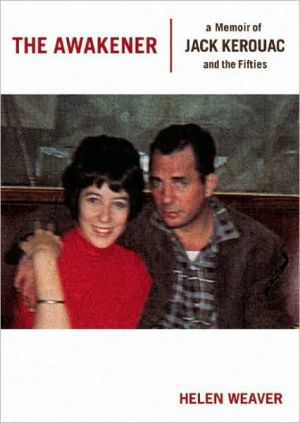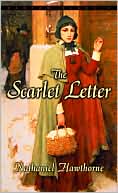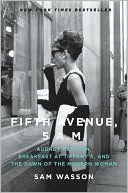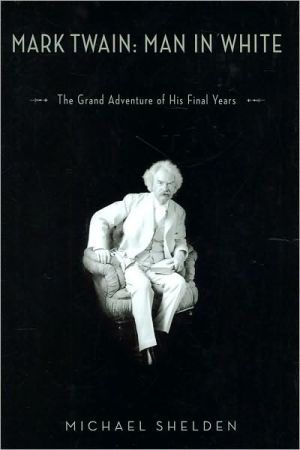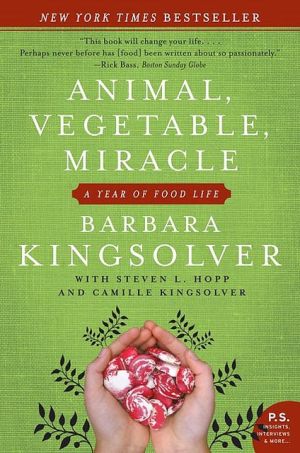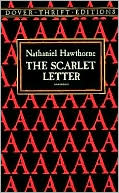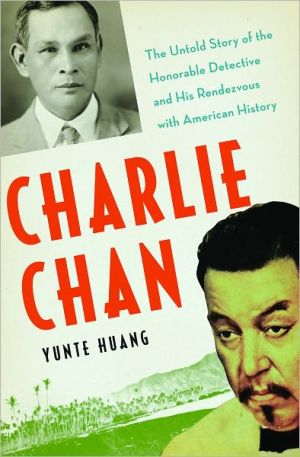The Awakener: A Memoir of Jack Kerouac and the Fifties
". . . [Weaver] paints a romantic picture of Greenwich Village in the 1950s and '60s, when she worked in publishing and hung out with Allen Ginsberg and the poet Richard Howard and was wild and loose, getting high and falling into bed almost immediately with her crushes, including Lenny Bruce. . . . Her descriptions of the Village are evocative, recalling a time when she wore long skirts, Capezio ballet shoes and black stockings,' and used to sit in the Bagatelle and have sweet vermouth on...
Search in google:
Helen Weaver's insightful and riveting memoir of love and friendship with Jack Kerouac and the Beats.The New York Times - Tara McKelvey…a pleasure to read…Early on, [Weaver] quotes Pasternak: "You in others: this is your soul." Kerouac's soul lives on through many people—Joyce Johnson, for one—but few have been as adept as Weaver at capturing both him and the New York bohemia of the time. He was lucky to have met her.
SUNDAY MORNING\ \ The American bards shall be marked for generosity and affection and for encouraging competitors. . . . The great poets are also to be known by the absence in them of tricks and by the justification of perfect personal candor. . . . How beautiful is candor! All faults may be forgiven of him who has perfect candor.\ \ —Walt Whitman, preface to Leaves of Grass\ \ I was sitting on the john in my pajamas when the buzzer rang. It was seven o'clock on a Sunday morning in November 1956 and Helen and I—my roommate had the same name as me—didn't have any plans for the day. Neither one of us had gone to church in years. As far as I knew it was going to be just another boring Sunday in Greenwich Village.\ \ Who the hell could be ringing our bell at this ungodly hour? To see who it was you had to look out my bedroom window, which looked onto the flagstone courtyard on West 11th Street below. To let somebody in you had to throw down the key in a sock, because the buzzer only worked one way.\ \ As I splashed water on my face I could hear Helen rummaging around in her room. Then her door opened and I heard her pad across the living room and into my bedroom.\ \ "It's Allen and Jack!" she yelled, sounding wide awake and very excited. I knew who she meant right away. She had told me all about the two writers she used to hang out with at the West End Bar when she was a student at Barnard College and they were at Columbia.\ \ I joined her at the window and looked out. There, looking up at us, were not two but four young men with big backpacks sitting beside them on the ground. The first snow of winter had frosted the little courtyard like a Christmas cookie and more snow was falling on their bare and tousled heads.\ \ Helen and the one with the horn-rimmed glasses had been shouting at each other and now as I stared at this dreamlike apparition, she went for the sock.\ \ Pretty soon I heard the tramp, tramp, tramp of four pairs of feet on the stairs and into our living room came four of the most amazing-looking men I'd ever seen.\ \ A raggletaggle band they were: unshaven, in clothes that looked as if they'd been slept in for a week—which, in fact, turned out to be the case, for they had been hitchhiking nonstop from Mexico—and each carrying a beat-up canvas rucksack on his back.\ \ Suddenly our tiny and rather barren living room was teeming with life. The studious-looking one in the horn-rimmed glasses with the dark curly hair, whom Helen introduced to me as Allen Ginsberg, was obviously the leader. He introduced in turn the beautiful young man with the sad Russian face as his lover, Peter Orlovsky; Peter's tall, silent brother, Lafcadio; and the not very tall but dark and absurdly handsome one, Jack Kerouac.\ \ Allen said they were all poets, and the deep respect with which he uttered the word "poet" indicated that being a poet was a passport to anywhere. They were exhausted, having traveled all night. Yet the energy around them, the energy they brought into our room—that odd room with the four doors and no windows, like a stage set that had finally found its play—was electric, was tangible. These grubby characters were somehow magnetic, dramatic, even glamorous, in a non-Hollywood, off-Broadway way.\ \ And Jack, the little man with the peculiar name (I remembered now, Helen used to call him "Jack Caraway Seed"), the one in the lumberjack shirt who looked like he had just gotten off the deck of a ship, was handsome enough to be a movie star in spite of his five o'clock shadow and rumpled clothes.\ \ In high school any boy that good-looking would have scared me to death, but for some reason this man immediately put me at my ease. He didn't seem to be aware of his good looks and besides, he looked familiar, the way strangers sometimes do, as if I'd met him before somewhere and didn't have to start from zero. It was as if the minute he walked in the door a movie started and I was in it, we were all in it, and wonder of wonders, I knew my lines.\ \ While Allen and Helen started yakking away over by the coffee table and Peter wandered around the apartment examining all of our books and Lafcadio took up a position by the bathroom door as if he were guarding it, Jack zeroed in on me.\ \ I was certainly far from glamorous. Helen and I hadn't even thought about getting dressed. She had slipped a nylon peignoir over her nightgown and I was still in my flannel pajamas. The boyish haircut I had worn when I thought I was gay had grown out to something midway between a pixie and a twenties bob. Back at Oberlin they used to call me Flapper Weaver.\ \ Jack had on a black-and-blue plaid shirt with the tail out over his baggy black pants. There was something incongruous and even comical about his good looks—literally comical, for he had the classic rugged profile of Dick Tracy in the comic strip of the thirties. He had a high forehead with a lock of hair that fell over it, a deep furrow between his eyebrows, and a kind of perpetual squint, as if too much light was coming into his eyes.\ \ The boys had taken off their heavy backpacks and set them against the wall beside Lafcadio, the dour Russian caryatid by the bathroom door. All except Jack, who had opened his up and started unpacking it. He and I were sitting on the floor in the middle of the room.\ \ "I'm a writer," he said proudly, taking out manuscripts and handing them to me one by one. They had strange titles: Tristessa and Mexico City Blues and Angels of Desolation. I thought they all sounded sad.\ \ "I wrote this," he said, handing me a dog-eared hardcover book: The Town and the City, by John Kerouac. Wow—he was a published author! I was impressed. I turned the book over. In the photograph on the back of the dust jacket I saw a younger, tamer Jack, his hair combed, in a jacket, a shirt, and a tie, looking pensive with downcast eyes.\ \ "Guy made me look like a fag!" Jack said of Arni, the photographer, shaking his head ruefully.\ \ But he perked up immediately. "It's like Thomas Wolfe," he said, with an intense gleam in his very blue eyes. Yes, he did look like a writer. I used to love Thomas Wolfe. As a student at Scarsdale High School I had read all of his books, had copied "O lost and by the wind grieved, O ghost, return again" into my diary. I'd even made both of my parents read Look Homeward, Angel. But since college I'd been on a Henry James kick. I felt that I had outgrown Wolfe.\ \ In his course on the American novel at Oberlin, Andy Hoover had talked about the two schools of writing, which he called the Leaver Outers and the Putter Inners. Wolfe, of course, was the Putter Inner par excellence.\ \ So I said, "Yes, I like Thomas Wolfe, but he would have been a better writer if he'd written less. He lacked discipline. He was lucky he had Maxwell Perkins for an editor. Now, take Henry James, for example. . . ."\ \ Well, this was like waving a red flag in front of a bull.\ \ We took up the debate of the Leaver Outers vs. the Putter Inners, and the battle was joined. Jack insisted that a good writer didn't need editing. "Writing should be spontaneous, like jazz!" (I noticed he had a way of italicizing certain words.) "Writing comes from God. Once you put it down, it's a sin to go back and change it!" He assured me that when his next book was published no editor was going to change a single word.\ \ And he leaped to the defense of his idol, Thomas Wolfe. We sat there on the floor surrounded by manuscripts, me in my pajamas and Jack in his rumpled clothes, and proceeded to debate the relative merits of Thomas Wolfe and Henry James, for all the world like two old friends who had known each other for years.\ \ We both felt strongly about what we were saying and yet there wasn't a trace of animosity in our debate. Even as I played devil's advocate I was secretly checking him out on a nonverbal level, gently testing the waters of attraction: Yes, he is really good looking; he talks funny, but I like it; he looks like he sleeps outdoors. He looks like he's been everywhere. He looks like a movie star—but he likes me! I can tell. Our eyes locked, our mouths kept talking, our minds sparred. And yet it was comfortable, as if we had already been intimate.\ \ There was something so natural and unpretentious about this man, even while he was telling me that he and Allen were both great writers. He said that they had discovered a whole new way of writing, and that they were going to be famous. The way he spoke, it sounded like a mission. It was their duty—and their destiny—to lead a revolution in American literature, to save it from the deathlike grip of the academy and return it to the flow of natural speech.\ \ Jack's own speech pattern was utterly unique. He told me he had been born in Lowell, Massachusetts, of French-Canadian parents; he had spoken French until he was six years old. So there were not only the twangy vowel sounds of Massachusetts, so northern and laid-back in harsh Manhattan, but also the breath of Little Canada and his French-speaking family. And then there was this strange mixture of italicizing enthusiasm and world-weary sadness, as if he were already an old man seeing everything from a great distance.\ \ He was a wild card foreigner who had shipped out on freighters and traveled the length and breadth of the land and looked it. His handsome squinting face had seen all weathers and he seemed to have brought all weathers with him when he walked in the door. He had frozen in the Arctic and fried in the jungles of Mexico. He carried his head low, or a little to one side, with a kind of sheepish, humble expression. Even his smiles were sad, and his laugh when it came was not a full-blown belly laugh, but more of a wistful, bemused chuckle.\ \ I told Jack I wanted to be a writer, too, and he didn't laugh. He said, "That's great!" and smiled his approval.\ \ "This is how you do it," he said. He pulled a little brown pad out of his shirt pocket and handed it to me, explaining that he always took one of these with him wherever he went. In these little nickel pads he jotted down impressions of everything that struck him, like an artist with a sketch pad, and used them later on in his books. He even called it sketching.\ \ The boys were taking turns cleaning up in the bathroom. As Jack headed for the shower I listened as Allen described their adventures in San Francisco the previous summer. At a poetry reading at the Six Gallery Allen had given the first public reading of a long poem called Howl. As he declaimed his poem Jack had started shouting "Go!" in cadence and beating out the rhythm on a gallon jug of wine. Allen recited the opening lines for us, starting with "I saw the best minds of my generation destroyed by madness, starving hysterical naked," and I immediately recognized this poem as an electrifying manifesto. Helen and I applauded. I could picture the scene.\ \ Allen told us that the day after this reading, Lawrence Ferlinghetti, founder of City Lights Books, had sent him a telegram that quoted what Ralph Waldo Emerson said to Walt Whitman after reading Leaves of Grass: "I greet you at the beginning of a great career." Ferlinghetti had added, "When do I get the manuscript?" City Lights had published Howl and it was already selling well, thanks partly to another reading in Venice at which Allen had caused a sensation by removing all of his clothes.\ \ Allen had dedicated Howl to "Jack Kerouac, new Buddha of American prose, who spit forth intelligence into eleven books . . . creating a spontaneous bop prosody and original classic literature," as well as to his other mentors, William Burroughs and Neal Cassady. Allen said we had to meet Burroughs. It was a name I had never heard before but the way he said it Burroughs was synonymous with God.\ \ I noticed that Allen's way of speaking was similar to Jack's. They both had beautiful voices and a distinctive lilting, hypnotic, almost singsong, way of speaking that I had never heard before. Allen said that when he read a long poem he would get carried away and begin chanting like a cantor. He had a habit of waving his index finger in the air like a modern-day Hebrew prophet. He looked like a Jewish intellectual but he sounded like Moses come down from the mountain.\ \ And it was with a kind of maternal pride free from any trace of competitiveness that Allen reported on the latest developments in Jack's career. Grove Press had accepted an excerpt from Jack's novel The Subterraneans for publication in Evergreen Review and was interested in others of his unpublished works. The two men stood confident on the threshold of their fame.\ \ That Sunday morning was a little like the scene in The Wizard of Oz where Dorothy steps out of the black-and-white world of Kansas into the technicolor land over the rainbow. I had the definite sense that Helen and I weren't in Kansas any more.\ \ She and I had always accepted the fact that we were on the fringes of the New York art and literary world, but suddenly I felt a part of it all. Looking from Jack to Allen, who was equally charismatic in a different way, and sensing their enormous vitality, their enthusiasm for literature and life, their steadfast belief in each other and in their destiny, mesmerized by their beautiful voices and the incantatory style of their speech, I did not doubt for a moment that they would be famous. It was just a matter of time. Such energy and charm and purpose could not be denied. They would beat down the doors of the publishing houses—beat down the walls, if necessary. They were a force of nature.\ \ Now the force of nature was hungry and wanted breakfast. We were low on food, so a collection was taken up and Jack volunteered to go down to the deli on the corner of 11th and Hudson and buy bacon, eggs, and English muffins.\ \ I came from a small family—just me and my brother and our parents. I'd never made scrambled eggs for six people before. I still remember how those twelve raw eggs looked in my mother's Pyrex bowl.\ \ After breakfast the boys felt the fatigue of their marathon journey. Allen asked politely if they might take a nap and we were happy to oblige, as we were tired too. The boys dug their sleeping bags out of their rucksacks and lined them up on the living room floor and Helen and I retired to our rooms. As I drifted off to sleep, acutely aware of all of that young male energy on the other side of my door, a funny image flashed into my mind.\ \ At our cottage at Candlewood Lake Club one summer a mouse had four babies in my father's sock drawer. The way those four poets were lying side by side in their warm cocoons reminded me of those little pink sacs, thin-skinned and quivering with life, huddled together in Dad's top drawer. As soon as we discovered them the mother mouse lost no time in whisking them all away to a safer location. Now it was as if some giant mother mouse had laid her babies in our living room, each in its separate sack.\ \ What was going to happen to the warm bodies on our living room floor? What did destiny have in store for them?
1 PrologueSunday Morning 112 The VillageSullivan Street 21Watchstraps Forever 33Farrar, Straus 37The Odd Couple 433 JackA Heap of Wheat 53Just in Time 57Two Dinners 63Season's Greetings 69Happy New Year 79Can't We Be Friends? 91A Room of my Own 994 LennyFrom Beat to Hip 107Free Speech 121Webster's Unabridged 137The Real Obscenity 1435 ChangesEndings 153My Claim to Fame 163A Visit to a Poet 171The City of Spindles 177It's All A Dream 187Reunion 199Impermanence 211An American Classic 2216 EpilogueJack's Voice 235AppendixThe Dictionary of Hip 241An Astrological Appendix 243Acknowledgments 257
\ The Star-LedgerIn her book 'The Awakener: A Memoir of Kerouac and the Fifties', the translator and writer Helen Weaver provides a lush picture of her short, turbulent affair with the Beat writer that changed her life. In Weaver's swirling memoir, readers will get a fresh perspective on Jack Kerouac and his magnetism as a man and writer.\ \ \ \ \ Tara McKelvey…a pleasure to read…Early on, [Weaver] quotes Pasternak: "You in others: this is your soul." Kerouac's soul lives on through many people—Joyce Johnson, for one—but few have been as adept as Weaver at capturing both him and the New York bohemia of the time. He was lucky to have met her.\ —The New York Times\ \ \ Publishers WeeklyFirsthand witness to the beat literary movement, Weaver (Antonin Artaud: Selected Writings) pays homage to the man and the writer Jack Kerouac, whom she met and fell in love with in 1956. Befriending Kerouac, Allen Ginsberg and comic Lenny Bruce, she makes these iconic counterculture figures tangible and captures New York's Greenwich Village of the '50s and '60s. The memoir reveals the author's own awakening—from discovering rock and roll through her personal sexual revolution to Buddhism. A lover of words and language, Weaver—immortalized in Kerouac's Desolation Angels as Ruth Heaper—writes this book “as an act of atonement” to Kerouac: “I rejected him for the same reason America rejected him: he woke us up in the middle of the night in the long dream of the fifties. He interfered with our sleep.” She moves from translator to writer, but states she is “uncertain whether it was the story of my own life or the story of the remarkable people I had known.” Ultimately, it's both. Photos. (Nov.)\ \ \ \ \ Baby Got Books. . . a fascinating look at the private side of Jack Kerouac and other luminaries, the Beat's scene in 1950's New York, and the legacy of the Beat Generation.\ \ \ \ \ Candace Eros DiazWeaver proves to be brilliantly honest throughout her memoir while placing readers in the thick of the New York Beat scene as only one who has lived it can. Her thoughtful reflection is rendered with loving care and great attention to detail, while transfixing the reader in a forgotten time. Through clear and straightforward language Weaver unapologetically places the real value of her experiences and her interpretations of those experiences ahead of the legends she encountered, while still paying them the tribute they deserve. It is a fine line to walk, but she does so gracefully and authentically.\ — MARY Magazine\ \ \ \ \ Dan BarthThis book does a good job of humanizing and demystifying the Beats. All the parties, problems, romances, brief affairs and hurt feelings Weaver talks about are specific to her and her friends in the '50s, but very much like the things my friends and I went through in the '70s, and that artistic young people are going through today while coming of age, groping for identity, finding love and making their way in the world.\ — Dharma Beat\ \ \ \ \ Gilbert Wesley Purdy. . . a memoir which a reader may cherish first because it recounts a life book-ended by two relationships with Jack Kerouac. But that reader will find Helen Weaver's remarkable life engaging, in its own right, as well. It is the story of a talented and spirited young woman growing up in the thick of her times. . . . an exceptional portrait of women at the cusp of the feminist era.\ — Eclectica\ \ \ \ \ Good Books in Bad Times. . . a vivid recollection of the birth of rock n roll and the counterculture movement known as the Beat Generation. . . . I'd recommend it to anyone looking for insight into the undoing of America that occurred during the 50s and 60s.\ \ \ \ \ litkicks.comA smart confidence underlies [Weaver's] bemused feminine understatement, and this book is a summation of a deeply thoughtful life.\ —Levi Asher\ \ \ \ \ New York PostThere is a tendency for memoirs written by women about The Great Man to be self-abnegating exercises in a kind of inverted narcissism - the author seeking to prove her worth as muse, as consort, as chosen one. Not so with Helen Weaver's beautiful, plainspoken elegy for her time spent with Jack Kerouac, who suddenly appeared at her door in the West Village one white, frosty morning with Allen Ginsberg, who knew Weaver's roommate, in tow.\ \ \ \ \ Shamhala SunThis book is evidence that the fifties had more going on than Leave It to Beaver. It's primarily the story of Helen Weaver's love affair with Jack Kerouac, but it also delves into her juicy romances with other lovers (of both genders), most notably Lenny Bruce. . . . At twenty-five, Weaver got her first taste of Buddhism from Kerouac, but she wasn't yet ready for the first noble truth. Years later she read The Miracle of Mindfulness, by Thich Nhat Hanh, and felt that she had come home. That said, she admits, 'My own practice has never really taken hold, and in this I am a little like Jack.'\ \ \ \ \ Tara McKelvey. . . [Weaver] paints a romantic picture of Greenwich Village in the 1950s and '60s, when she worked in publishing and hung out with Allen Ginsberg and the poet Richard Howard and was wild and loose, getting high and falling into bed almost immediately with her crushes, including Lenny Bruce. . . . Her descriptions of the Village are evocative, recalling a time when she wore 'long skirts, Capezio ballet shoes and black stockings,' and used to 'sit in the Bagatelle and have sweet vermouth on the rocks with a twist of lemon.' Early on, she quotes Pasternak: 'You in others: this is your soul.' Kerouac's soul lives on through many people — Joyce Johnson, for one — but few have been as adept as Weaver at capturing both him and the New York bohemia of the time. He was lucky to have met her.\ — New York Times Book Review\ \ \ \ \ The Beat ReviewThe most recent book to join the body of literature by women who lived with and among the famous Beat writers is Helen Weaver's The Awakener: A Memoir of Kerouac and the Fifties. . . . While Kerouac and the 1950s are a part of this book, they are not the entire book, or even its most riveting sections. . . . Parts of the book are indeed about Kerouac's power and influence. However, there are significant, insightful portraits of other men, including Richard Howard, one of the most important translators of the past 60 or so years, who has brought Stendhal, Baudelaire, de Beauvoir, and Camus into English. Weaver also writes evocatively about Lenny Bruce, the comedian and social critic who was tried for obscenity-and convicted of obscenity, unlike Ginsberg and Burroughs. . . . Her style in The Awakener is distinctly her own, as for example when she borrows from both Yiddish and the Beat argot and describes herself as 'a little shiksa chick.' She has a wry, deadpan sense of humor and sometimes sounds tongue-in-cheek. Candidly, she describes her physical ailments, her love affairs in New York and in Europe-including her orgasms-and her therapy in Freudian analysis. Her strength is in psychology: understanding her own motives and the motivations and the motives of Kerouac and Ginsberg.\ —Jonah Raskin\ \ \ \ \ The Electric ReviewThrough her insightful prose and piercing honesty, she manages to paint a universal face with this book, telling the story of many-a-man living at an invisible edge. If anything, Helen Weaver wrote this book for all these human shadows who hunger to be held (but who always come to break the embrace before it becomes another cage).\ —John Aiello\ \ \ \ \ Library JournalIn the latest in a long line of kiss-and-tell memoirs about Jack Kerouac, Weaver, translator of over 50 books from the French, chronicles her brief love affair with the author against the backdrop of the 1950s in Greenwich Village. She works in publishing, undergoes psychoanalysis, and becomes part of a literary circle that includes Allen Ginsberg, Richard Howard, and Dan Wakefield. Unlike Kerouac, she is swept into the cultural revolution of the 1960s, embracing New Age ideas like Native American spirituality, goddess worship, witchcraft, and astrology. Weaver writes in a clear, straightforward style, candidly discussing her feelings about Kerouac and others, including her roommate Helen Elliott and her rival for Kerouac's affection, Joyce Johnson. Her analysis of Kerouac's life, work, and reputation is intelligent and on target. In the end, Weaver regrets that her own rejection of Kerouac paralleled that of a literary establishment that only came to appreciate him after his death. VERDICT Readers interested in the role of women in the Beat Generation will enjoy this book alongside earlier works like Joyce Johnson's Minor Characters and Carolyn Cassady's Off the Road.—William Gargan, Brooklyn Coll. Lib., CUNY\ \ \ \ \ Kirkus ReviewsBeat-era hipster and former love interest of Jack Kerouac recalls her rebellious youth in the Greenwich Village of the 1950s and beyond. Oberlin grad Weaver moved to New York with an English degree, landed a secretarial job in publishing and found the requisite squalid NYC apartment. Her roommate happened to be friends with the Beat Generation's pied pipers, Kerouac and Allen Ginsberg. Soon enough, Weaver and the handsome literary maverick Kerouac became an item. The author was clearly enamored and slightly envious of the still-penniless Kerouac's vagabond poet lifestyle. In fact, his occupational freedom fueled her desire to transcend the workaday publishing-industry world. Kerouac also represented the antithesis of her conservative, domineering father. "Life is a dream," Kerouac often repeated like a protective mantra. For Weaver, though, life became increasingly all too real, as her rigid nine-to-five existence clashed with Kerouac's live-for-the-moment philosophy. When the poet's drunken revelries got out of control, Weaver threw him out-then, naturally, regretted it. After the dissolution of their relationship, the memoir moves in inconsistent fits and starts. Weaver became a sought-after translator and had a serendipitous one-night stand with comedian Lenny Bruce in the mid '60s. Then her life lapsed into common midlife-crisis patterns, including therapy sessions, astrology and self-help gimmickry. She discovered that despite her passion for pot-smoking and rock 'n' roll, she could never quite escape her inborn upper-middle-class mores. In fact, she wanted Kerouac to be not only an adventurous writer but also a reliable life partner. As she discovered, you could never have Kerouacthe man without the creatively self-destructive Kerouac the artist. An evocative multidecade portrait of the Beat milieu undercut by the author's mostly pedestrian biographical details.\ \
